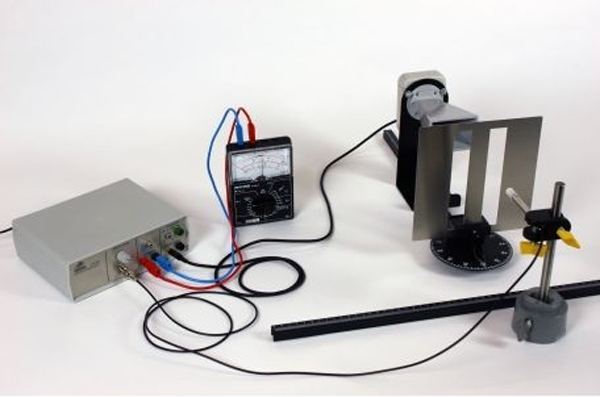Diffraction and Interference of Microwaves

If a double-slit is positioned in the divergent microwave beam, a characteristic intensity profile results behind this double-slit. The periodicity of the intensity profile can be used to determine the wavelength of the microwaves that are used.
- Convenient all-in-one set includes control unit, transmitter and receiver as horn antennae, microwave probe, microwave benches, grating, slit plates, prism, and reflection/absorption plates
- With the same set, all aspects of microwave physics can be studied quantitatively: polariziation, reflection, transmission, refraction, propagation, diffraction, interference, inverse square law, standing waves, conservation of energy in reflection and transmission
- Very detailed experiment guides for all experiments
Support rod, stainless steel, l = 250 mm, d = 10 mm
Multi-range meter, analogue
Connecting cord, 32 A, 750 mm, red
Connecting cord, 32 A, 750 mm, blue
Right angle clamp expert
Barrel base expert
Microwave set II, 110…240 V
- Microwaves
- Electromagnetic waves
- Huygens principle
- Double-slit
- Interference
